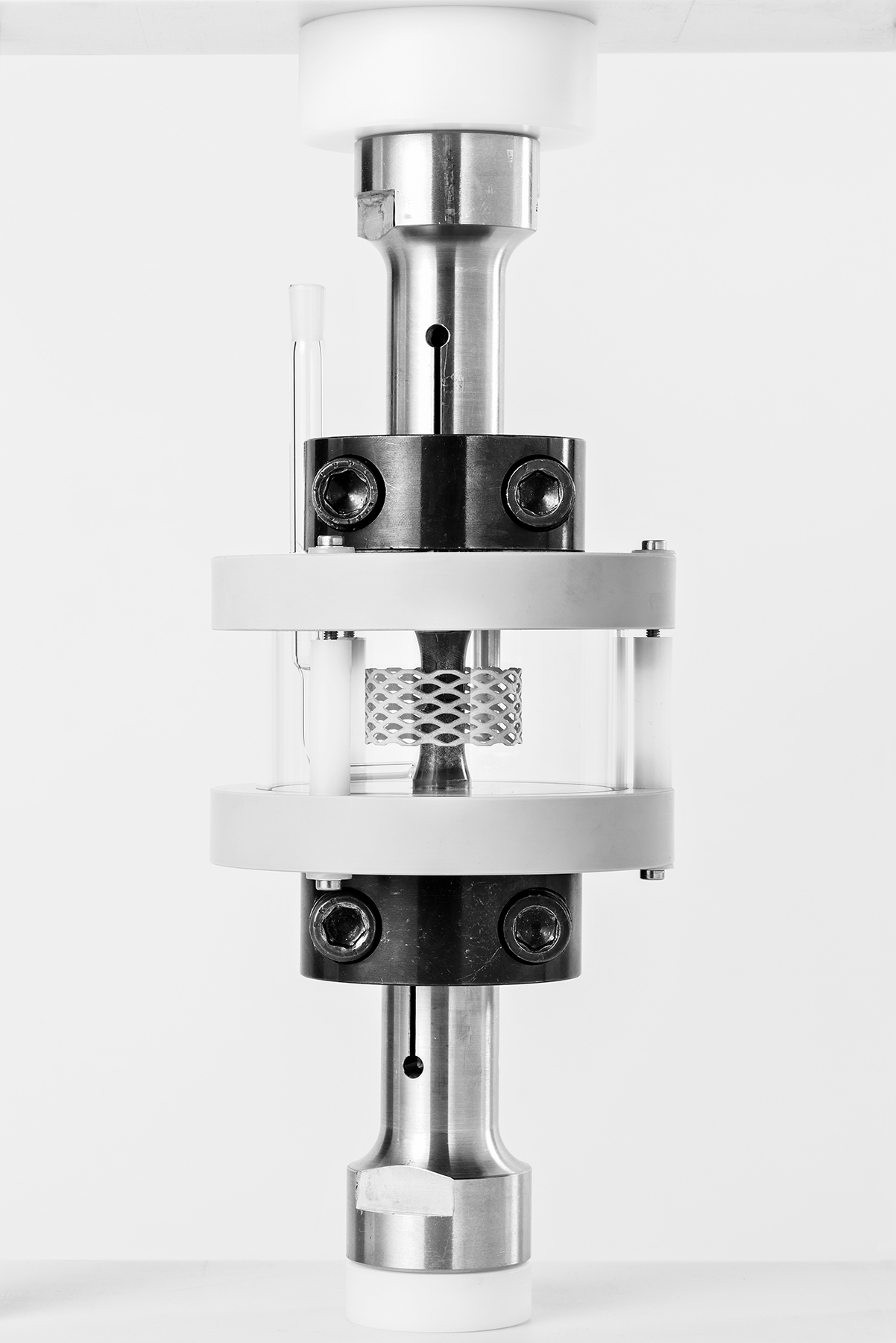The service life analysis for hydrogen-loaded materials and systems requires complex analysis and evaluation methods; both on the experimental and numerical side. The high diffusivity of hydrogen molecules poses an enormous challenge to conventional analysis methods and test equipment, especially when increased system pressures in the area of the fuel cell, the piping systems or the hydrogen storage systems must form the basis for the service life verification.
In order to meet varying customer requirements, the Fraunhofer LBF, together with system partners, develops, plans and builds the test environment itself in order to be able to provide customized solutions, for example for quasi-static and cyclic service life verification on material samples.
For example, the Fraunhofer LBF has a servo-hydraulic testing machine which, equipped with a pressure autoclave and a temperature control unit, allows quasi-static as well as stress- and strain-controlled, cyclic tests under the medium hydrogen 5.0 or 6.0 and at temperatures from -40 °C to +130 °C. This allows service life analyses in the range of 10 to 10 years. This allows service life analyses in the range from 10 bar to 50 bar pressurization. In addition, tests can also be carried out under nitrogen with a pressurization of 10 bar.
However, not only the service life verification of materials and component sections is covered by special testing technology. The Fraunhofer LBF also carries out tests on complete battery and fuel cell electric systems using specially developed and adapted test equipment. For example, the institute has a MAST (Multi-Axial Oscillating Table), which makes it possible to perform durability tests on batteries or fuel cells under combined mechanical, electrical and thermal stresses under almost real operating conditions. Due to the possible load capacity of the vibration table with a maximum of 1000 kg, even larger system components up to smaller electric vehicles can be tested at different temperatures, mechanical stress profiles and under electrical load.
In order to verify the service life, information on the operating stress resulting from the real operating load is required first and foremost. To measure such operating stresses, Fraunhofer LBF develops system-specific solutions in coordination with its customers. For decades, measuring wheels, highly integrated measuring systems and adaptive sensor technology have been used to acquire data from operational measurements on the chassis, mechanical components, batteries and, more recently, fuel cell systems, and to process this data for durability verification under variable load amplitudes.
In addition to the various test environments for the experimental analysis of the influence of hydrogen on the service life of material samples or system components, the Fraunhofer LBF also offers options for the numerical mapping of specific properties. Using multi-body and stress simulations, a digital image of the real test specimens is derived. Methods based on probabilistic FMEA (Failure Mode and Effects Analysis) are used to evaluate the safety and reliability of electrical, electronic or hydrogen-carrying systems.
 High Performance Center - Green Materials for Hydrogen, Hesse
High Performance Center - Green Materials for Hydrogen, Hesse